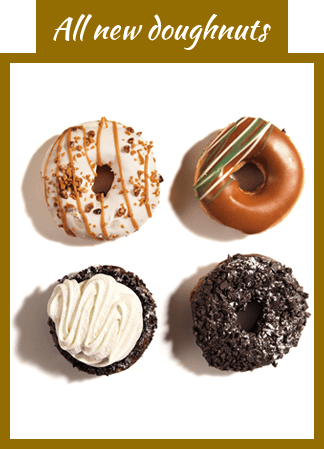Samurai Teppanyaki House founding chef Clark Zhang has launched new Norwood diner Kazumi Ramen, bringing a high-quality offering of his favourite “everyday” Japanese noodle dish to The Parade.

The tattoos adorning the arms of teppanyaki chef Clark Zhang remind him that good things in life take time, perseverance and a bit of sacrifice.
This mantra also underpins his philosophy in the kitchen, where he takes no shortcuts.
Zhang is qualified with the Japan Teppanyaki Association, which requires chefs to possess several years of experience and pass both theory and practical tests.
Almost a decade ago, Zhang co-founded Samurai Teppanyaki House on The Parade, before relocating the restaurant to a larger location at Hyde Park about four years ago.
Earlier this year, Zhang and his new business partner, Kazumi Kaku, launched Kazumi Ramen on The Parade, Norwood, just a few doors down from where he first launched Samurai.
Both chefs have a background in Japanese fine dining, so Kazumi Ramen was always going to be a bit different to your standard ramen eatery.
Zhang still works the hot plate at Samurai Teppanyaki House, but is enjoying the diversification offered by the new ramen diner.
Although ramen is a “simple daily food” of noodles, broth and toppings, Zhang says the difference at Kazumi Ra-men is prime Wagyu beef and a broth that takes 72 hours to prepare.

Dishes at Kazumi Ramen include Wagyu gyoza, karaage chicken, Wagyu ramen miso and ajitama (soft egg). Photo: supplied.
Everything is made in-house, including the noodles.
“Personally, I’m a ramen guy; I love ramen,” says Zhang.
“Ramen is very simple daily food; it’s not fancy.
“When I’m in Japan I can eat ramen every day, three times a day, and I have planned to open my own ramen shop for a long time.
“The noodles in Japanese ramen are different to other cuisines, like Chinese noodles or even Italian pasta, but still have to be cooked perfectly, like pasta that is al dente.”
Zhang and his business partner Kaku have created their own take on the quick and simple nature of ramen, while ensuring they’re executing the dish to a high standard.
“A lot of people think they’ve had ramen, but they may not have had the true experience of ramen unless they’ve been to Japan,” says Zhang.
“There’s a big range of quality because you can get ramen from $2 up to $20 or $30.”
“At Kazumi Ra-men, if you spend under $20 you can have a really nice, decent bowl of ramen.
“We will keep doing new dishes and the chefs will keep developing our food.”

Kazumi Ramen on The Parade, Norwood. Photo: Ben Kelly.
The Kazumi menu features include steak ramen, Wagyu ramen shoyu or miso, vegetarian ramen, wagyu tantanmen and curry ramen.
Sides include karaage chicken, jumbo-size wagyu gyozas and ajitama (soft egg).
In keeping with the no-frills style of the restaurant, the only alcohol served is beer.
A typical ramen shop in Japan is all about efficiency, with fewer than 10 seats, usually along a bench, designed to get customers in and out quickly.

Get InDaily in your inbox. Daily. The best local news every workday at lunch time.
Thanks for signing up to the InDaily newsletter.
Kazumi Ramen can seat 28 people, with a long bench counter and tables for two.
“If you walk in and can only hear the noise of customers slurping noodles, it means it’s a good restaurant,” says Zhang.
“Also, ramen should be served in five minutes; if it’s longer than that, there’s something wrong.
“In Japan there’s a standard for ramen – some restaurants in Australia that I’ve eaten at, they don’t do the right things. They give you a huge bowl of broth with a lot of soup, which is wrong.
“In a ramen shop, the broth is the most valuable thing and takes the most effort from the chef.”

The restaurant features a vibrant, warm-toned mural emblazoned with kanji symbols that represent the name of the restaurant.
“These three kanji symbols together have meaning,” Zhang explains.
“The first one is Ka, which means to add or increase; the second one is Zu, which means healthy or long life; and Mi means beautiful. So that’s the meaning we want to pass on to our customer: good healthy food.”
Once the restaurant is established, Zhang will look to expand Kazumi Ramen to other locations.
“The past 10 or 15 years have been all about sushi, but ramen is the next big trend for Japanese cuisine in Australia.”
Local News Matters
Media diversity is under threat in Australia – nowhere more so than in South Australia. The state needs more than one voice to guide it forward and you can help with a donation of any size to InDaily. Your contribution goes directly to helping our journalists uncover the facts. Please click below to help InDaily continue to uncover the facts.
Powered by PressPatron











